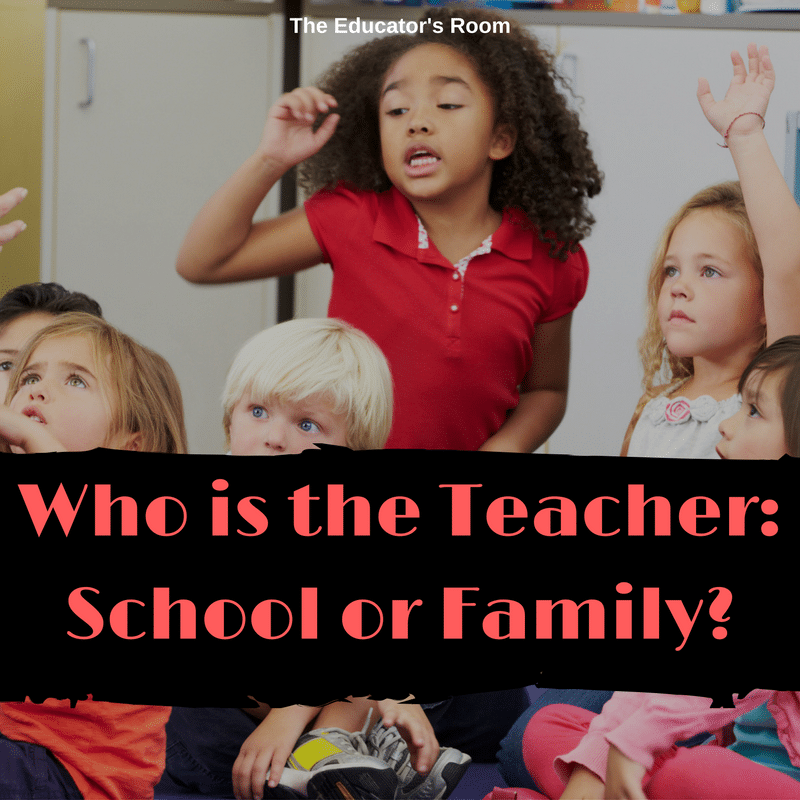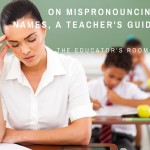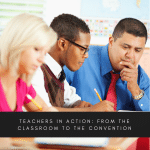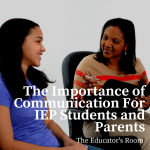I saw a discussion post on Facebook the other day about education. No surprise. Everyone went to school, everyone has learned something in their life, so everyone has an opinion. Parents are passionate about their kids and have opinions about all things school. This discussion, however, was a newer one to me. It was about what schools “need to teach.” The majority of the ideas were focused around life skills. Schools should be teaching sewing, gardening, how to balance a checking account, etc. These are all necessary and great skills for student success, but let’s look at what schools teach. And let’s talk about what families need to teach too.
Schools Should Teach
Academics: From prekindergarten through twelfth grade schools have curriculum and standards, mostly set at the state level, of the academics that must be taught. Skills range from basic understanding of letter and number sense to applying this knowledge to present projects. These are the skills we learned in schools such as fractions and biology as well as history and grammar. With understanding of brain development how learning occurs, education has also become applying and synthesizing these standards. Each grade level has an extensive list of expected standards for academic knowledge.
Social Skills: Bullying is a national problem and many schools are adopting social skill standards to address this situation. Kansas adopted such standards in 2012 and those standards are being implemented in schools across the states. They are not alone. Students are learning about, discussing and practicing skills for emotional health and learning. Skills that have previously been practiced and discussed at dinner tables, are being taught in public schools now.
[bctt tweet=”Students are learning about skills for emotional health and learning” username=”EducatorsRoom”]
Language Proficiency Standards: As our nation becomes more diverse, we have families with English as a second language. These students of various ethnic backgrounds from home with different primary languages are being taught. They have standards and testing which help move them towards proficiency. Diverse cultures and languages bring wonderful opportunities to our schools, but this also creates more learning.
21st Century Skills: Along with the change of the century came new skills to teach at schools as well. Educators are now teaching 21st century skills to prepare students for jobs that may not even exist today. Skills in technology and media literacy, critical thinking and communication skills and as well as career skills. All of this starts in preschool and continues through high school for added materials educators are responsible for.
From a one room school house to campuses of thousands, schools have changed. Along with those changes there are added responsibilities. Schools offer breakfast, after school care and teach everything from social, emotional, academic and career skills. Students spend an average of 6 1/2 hours a day for 180 days per year in school. That leaves 17 1/2 plus hours a day for 365 days a year for students to be at home. Schools have students 1,170 hours a year. Let’s look at the learning that should be happening at home.
Families Should Teach
Academics: I am not a believer in homework, but the academics that happen at home should be in experiences. Going to the library. Talking about your personal family traditions and beliefs. Eating dinner together and having discussions. Playing silly games. Reading books. Coloring and drawing and creating together. Attending religious groups, athletics, and other club activities. These are all part of the academics of home life. The experiences and knowledge students learn at home become part of their background schema. This is drawn upon for making connections and building the learning that happens at school. Families spending time together is part of the home responsibility.
Social Skills: This “me” attitude that is so pronounced in our society has to change. We need a society that shows compassion and kindness to all. Spending time as a family talking about what values you believe and how others should be treated helps students make connections as these values are discussed at school. There are resources available through your school, councilor and online. Talk about giving to others. Model social skills you want your child to have. Develop the human you want as a neighbor.
[bctt tweet=”Model social skills you want your child to have” username=”EducatorsRoom”]
Language Proficiency Standards: If you are in a single language home or a dual language home, language is the basis of learning. English is a unique language with many words that have multiple meanings and things that do not mean as they sound. Talk about words and language. Play word games. Many libraries now have games you can check out to use at home. Read and write or text others. Model language for your children and talk about language with them.
21st Century Skills: The big ideas behind 21st century skills are collaboration, creativity, communication and critical thinking. These are skills students will need to find careers and be successful as adults. A parents guide to 21st century skills is available from Edutopia s in English and Spanish. There are many things you can do at home. Discuss local, national and world events at home. Observe and understand cultures and traditions that are different than your own. Talk about what impact your family has on your own neighborhood, community, state. volunteer as a family or pick up litter. Demonstrate responsible choices as a citizen. Get connected to your student’s school as well as the digital media they are using. Discuss safety for both physical situations (knowing phone, address, stranger awareness) as well as online safety. Many of the 21st century skills can be addressed with open discussions and finding time for your family to reach out to others together.
Society has changed. Families are working, busy and finding time together can be a challenge. But our children are the most important resources we have for our future, so we must work together to help them learn. The discussions and activities you do at home have an impact on what they do in school. Educators are working to prepare them for a future we don’t know. But we are all in this together. So while we there are so many skills a student needs to be successful, our society will be most successful when all families teach too.







